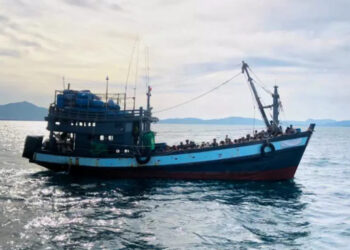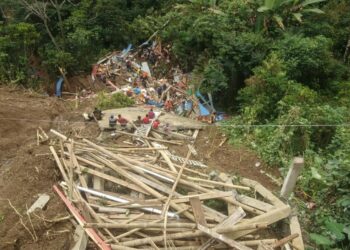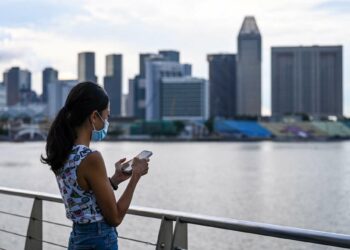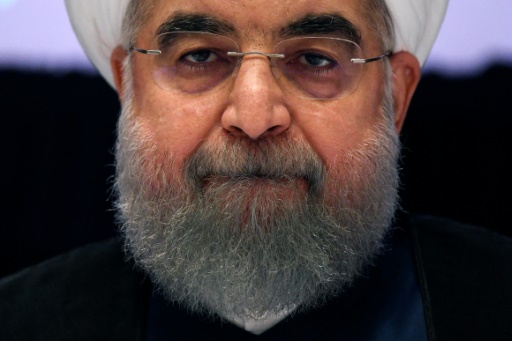JAKARTA, Indonesia – It was almost half a century ago but Bedjo Untung still remembers the details of his time in the prisons of Indonesia’s capital city, where he was held for years without trial.
“When I was thrown into jail, I was only 17 years old,” Mr. Untung told The Globe Post.
Mr. Untung, now 64-years old, recalled being arrested by soldiers in 1970 for his involvement in the Indonesian Student Association (IPI), a youth wing of the Communist Party of Indonesia (PKI), the world’s third-largest communist party, after those in China and the Soviet Union.
In October 1965, General Hajji Suharto, a powerful Indonesian military leader, accused the PKI of organizing a brutal coup attempt, following the kidnapping and murder of six high-ranking army officers. A nationwide campaign of human rights violations was carried out against all those considered members of the PKI and their suspected sympathisers. The killings, arrests, torture and disappearances lasted for several years.
One of the worst massacres of the 20th century has never been officially investigated and its perpetrators have never faced justice.
Mr. Untung said tens of thousands of people accused of being members of the PKI were incarcerated in stages from 1969 to 1976 in various regions of the country by the New Order government under Suharto’s regime, without ever facing a trial.
“I do not know what I am doing wrong, that is what I feel is very unfair,” said Mr. Untung, who also lost his parents after they were captured by the army. Mr. Untung said he was subjected to torture, forced labor, and other inhumane treatment in prison.
He was released years later, but the government branded his citizens’ card as a former political prisoner, which led to discrimination in various aspects of his life.
Mr. Untung said most of political prisoners were not accepted by their families after being released, due to the stigma of being members of the PKI, which was accused of government rebellion and atheism in a country with the largest Muslim population in the world.
The government also prohibits former PKI members and their children from becoming government employees or members of the army.
Now free, Mr. Untung has waited for the government to investigate the injustices suffered by victims of human rights abuses. “But there is no attempt to clarify what has happened to us so far,” he said.
In 1999, Mr. Untung and several other former political prisoners established the Research Foundation for Victims of Assassination ’65 (YPKP 65) that became a research and advocacy body for victims of human rights violations from that time.
He said the foundation noted at least 20,000 former political prisoners are still alive, and wants their names to be restored by the government.
“We are demanding the government to immediately reconcile and give a sense of justice for the victims,” said Mr. Untung. “At least the government recognizes and apologizes that there has been mass killings and the detention of innocent people without going through court mechanisms.”
Mr. Untung said the reconciliation effort must be accompanied by a rectification of history that was manipulated by the interests of the Mr. Suharto’s New Order government.
U.S. Opens 1965 Massacre Documents
The U.S. government last month made public 39 declassified documents in Jakarta after a request by the non-profit National Security Archive.
The previously secret documents, which total 30,000 pages, are diplomatic cables sent by the U.S. Embassy in Jakarta to the State Department, highlighting systematic human rights abuses during the 1965-66 atrocities. It also included an estimate that 100,000 people had been slaughtered. Other estimates say 500,000 or more people were killed in the 1965 massacre.
One telegram dated December 28 of that year recorded that people accused of being PKI members were brought to an unknown location where they were slaughtered and buried.
The document also reveals a surprising degree of American involvement in the brutal anti-communist purge. In July 2016, a seven-judge tribunal said Indonesia was directly responsible for the killings and the U.S., U.K. and Australia were complicit.
Amnesty International Indonesia Director Usman Hamid told The Globe Post that the newly-released documents have provided new momentum to pressure the Indonesian authorities to reveal the truth about the atrocities that have been ignored for decades.
“These documents show how crucial it is for the Indonesian authorities to seek ways to ensure truth, justice and adequate and effective reparations, in accordance with Indonesia’s international obligations following the release of the declassified documents,” Mr. Hamid said.
He urged state institutions, including the Indonesian military which is mentioned many times in the archives, to respect the right to freedom of information and reveal their own records publicly.
Mr. Hamid said that National Human Rights Commission completed in July 2012 an investigation into human rights violations committed in 1965. Investigators concluded that the abuses meet the criteria of gross human rights violations, including crimes against humanity.
To date, however, there has been no indication that the government will even launch a criminal investigation, Mr. Hamid noted, adding that attempts to establish a truth commission on the national level have stalled due to a lack of political will.
Asvi Warman Adam, a historian and researcher at the Indonesian Institute of Sciences (LIPI) told The Globe Post that the Indonesian government needs to resolve the various controversies that occurred in the dark period, including by apologizing to the victims.
“More than 11,000 people were dumped on the island of Buru, Maluku Province, without going through the judicial process. How is the government going to provide justice for them,” Mr. Adam said.
Non-judicial Mechanism
The disclosure of the U.S. records and the protests of the victims have not seemed to encourage the government to hold legal proceedings in the case.
Coordinating Minister for Political, Legal and Security Affairs Wiranto said the U.S. diplomatic cable document would not be a reference for the government to investigate the mass killings.
“Of course, the document will not be part of [the evidence] in the process,” said Mr. Wiranto, who only uses one name.
Even if the documents were used as a reference in the investigation, he said, there would need to be a rigorous verification process. He said one of the difficulties of disclosure in human rights cases is the ability of the government to seek witnesses and evidence.
“Moreover, it has been so long since the incident happened, so (the witness) has become very biased,” Mr. Wiranto said.
Therefore, the government has chosen non-judicial ways to resolve the case, including lifting the ban on PKI members’ families serving as government officials. But Mr. Untung doesn’t believe the settlement mechanism goes far enough.
“As long as there are still survivors, the government must clear their name,” he said.























